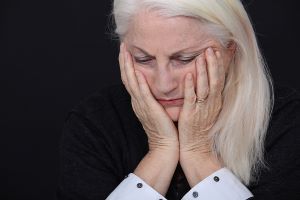 A new study published in the Journal of the American Geriatrics Society looked at formal and informal social participation and elder mistreatment.
A new study published in the Journal of the American Geriatrics Society looked at formal and informal social participation and elder mistreatment.
“Our study examined patterns of social participation as well as abuse or mistreatment in older adults living in the community,” study author Emmy Yang told us. “We examined the frequency of emotional, physical and financial mistreatment in men and women over the age of 60. We wanted to determine whether older adults' engagement in the community and informal socializing with family or friends had any implications for their propensity for mistreatment.”
According to the World Health Organization, the pandemic has seen an increase in rates of elder abuse. Prior to the pandemic approximately one in six people over the age of 60 experience elder abuse annually. The places with the highest reports of elder abuse include long term care homes. Approximately two out of every three staff members say they have engaged in elder abuse in a given year.
Researchers hypothesized that older adults who had lower levels of social participation would be more likely to report mistreatment, based on previous data suggesting that mistreatment is associated with greater social isolation. They expected that older adults experiencing abuse or mistreatment would be more likely to withdraw from social activities.
“Since the start of the COVID pandemic, there has been widespread concern about the effects of social isolation in older adults, who have had to curtail many of their usual social activities,” Yang told us. “But there has been little study of associations between older adults' social activities and their risk of mistreatment. We believe it is important to identify social risk factors for mistreatment, since these may be potential targets for intervention against mistreatment in older adults.”
The WHO reports that the results of elder abuse include the potential for serious physical harm and psychological effects over the long term. Since aging populations are increasing around the world, it’s predicted that elder abuse will see an increase in many countries. By 2050, the amount of people over the age of 60 will double to two billion people.
Researchers analyzed data from over 2,200 older adults from the National Social Life, Health and Aging Project, a population-based cohort study that aims to provide policy makers, healthcare practitioners, and scientists with insights for improving the overall social, physical, and emotional health of older U.S. adults. Using multivariable models adjusting for age, race/ethnicity, education status, and chronic health conditions, they examined relationships between different forms of social participation and three types of elder mistreatment (emotional, physical, and financial) among adults in 2015-2016.
“We found that older women who socialized informally with friends and family at least weekly were less likely than women with less frequent socializing to have experienced emotional and financial mistreatment,” Yang told us. “However, older women who were broadly engaged in organized community-based activities such as volunteering, attending organized meetings, and attending religious services were more likely to report emotional mistreatment.”
Researchers were surprised to find that older women who were more engaged in the community were just as likely, if not more likely, to report emotional mistreatment than women who were less engaged in these activities.
“This should not be taken as evidence to discourage older adults, particularly older women, from engaging in social activities,” Yang told us. “It should, however, signal to individuals and practitioners to be on the lookout for mistreatment even if older adults appear to be quite socially engaged. It also highlights that community-based social activities may be an opportunity for not only helpful but also harmful social experiences for older adults.”
Yang told us that these results also suggest that taking a "social history" in older adults-- including assessing important relationships and activities in an older adult's life-- may be an important part of screening for or intervening against mistreatment.
Patricia Tomasi is a mom, maternal mental health advocate, journalist, and speaker. She writes regularly for the Huffington Post Canada, focusing primarily on maternal mental health after suffering from severe postpartum anxiety twice. You can find her Huffington Post biography here. Patricia is also a Patient Expert Advisor for the North American-based, Maternal Mental Health Research Collective and is the founder of the online peer support group - Facebook Postpartum Depression & Anxiety Support Group - with over 1500 members worldwide. Blog: www.patriciatomasiblog.wordpress.com
Email: tomasi.patricia@gmail.com